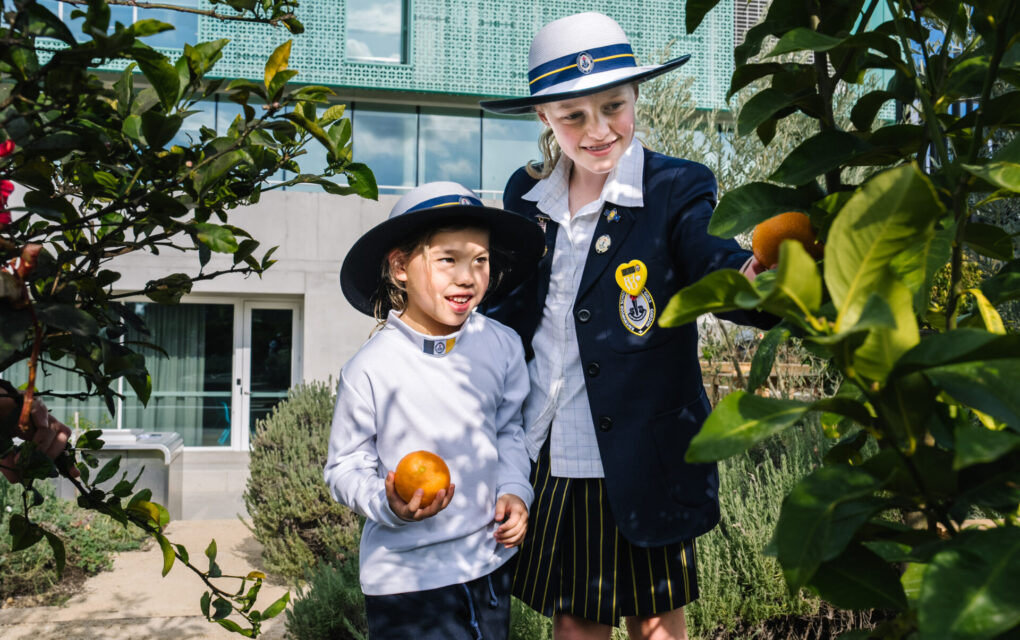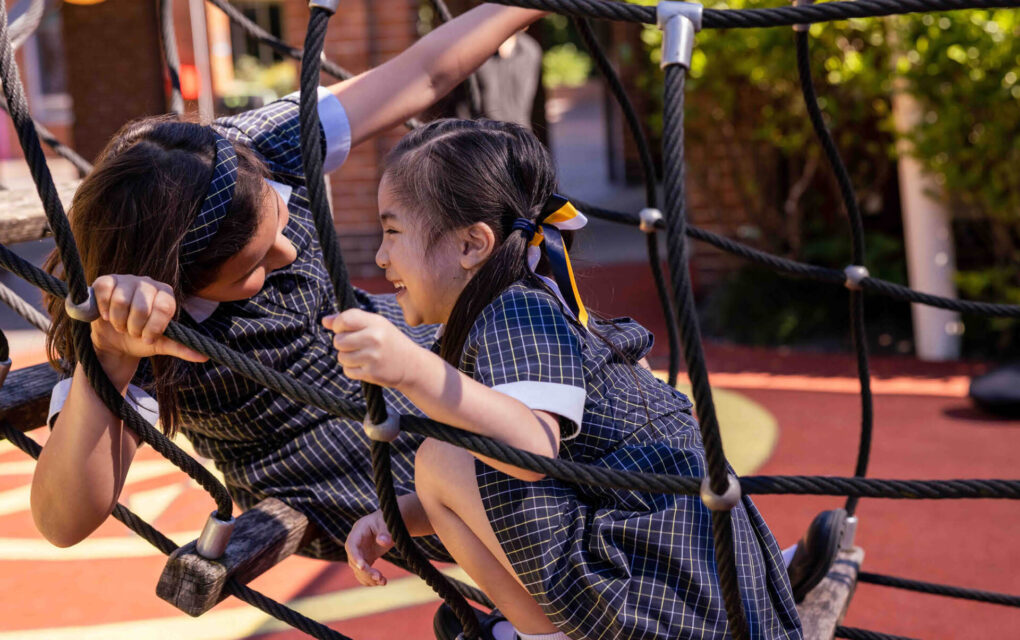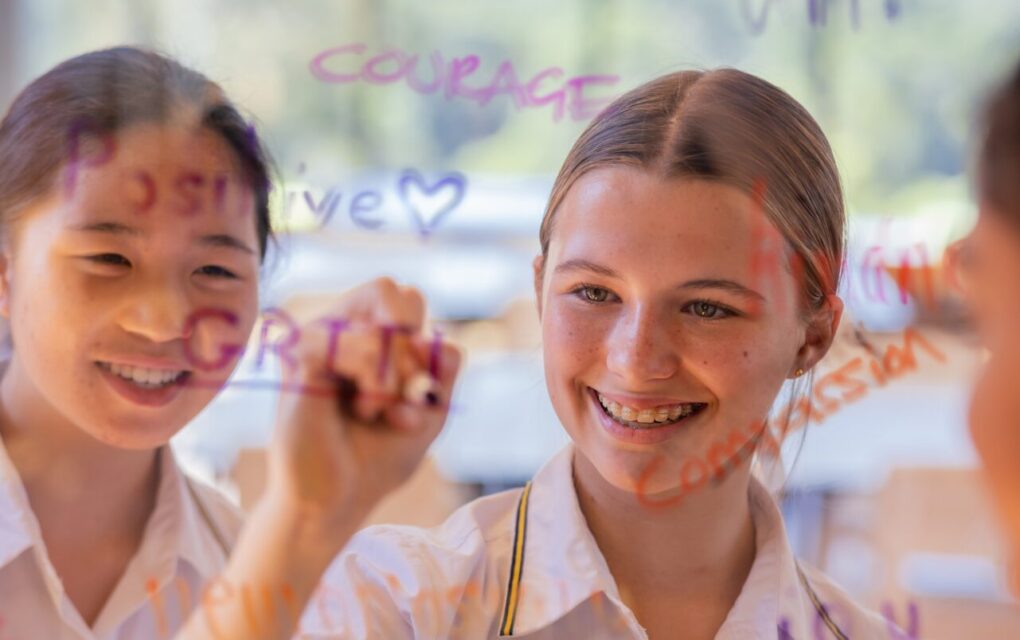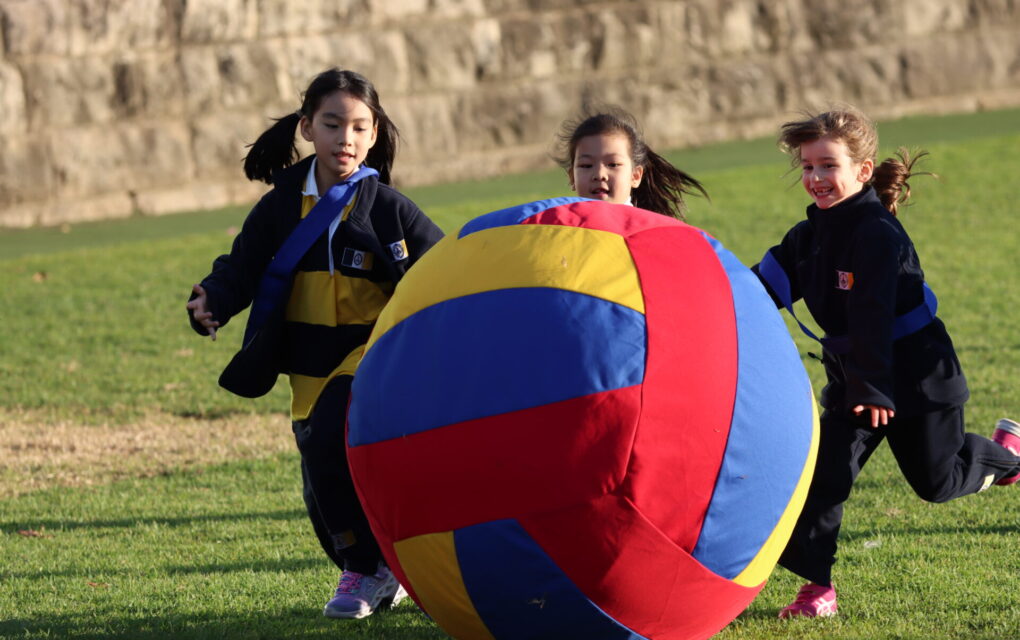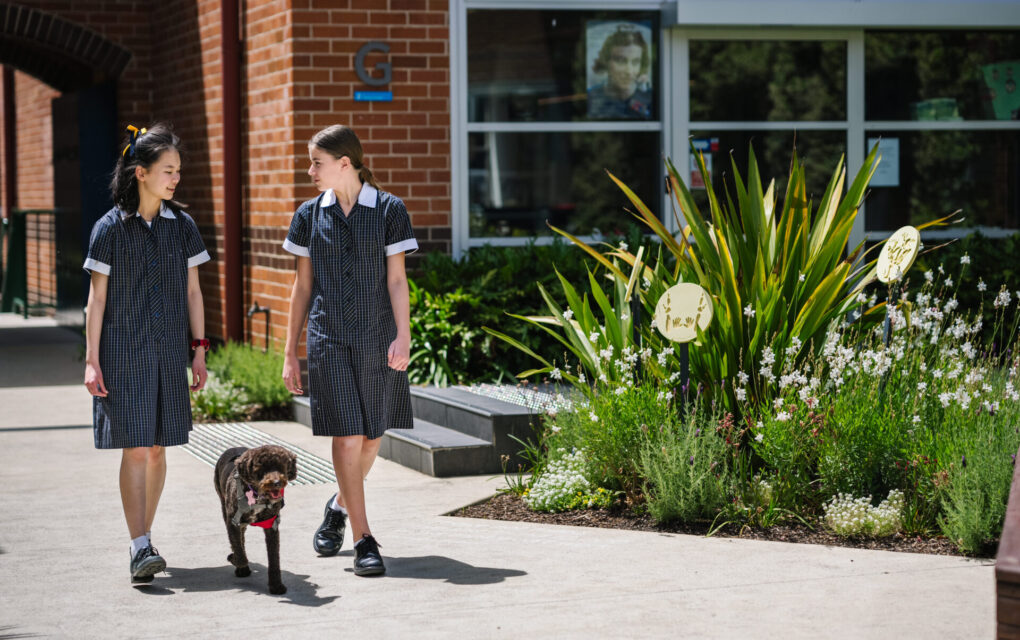Ravenswood is recognised as one of the leading girls’ schools in Positive Education globally.
Ravenswood stands as a beacon of innovation and excellence in fostering student wellbeing through its comprehensive Positive Education and Visible Wellbeing program.
Ravenswood was the first school in NSW to implement a Visible Wellbeing approach to Positive Education – making wellbeing a lived and visible experience across the many layers of the School community. This approach was established under the guidance of Lea Waters, Professor and Founding Director of the Centre for Positive Psychology at the University of Melbourne and former President of the International Positive Psychology Association.

In 2019, Ravenswood had the privilege of welcoming its inaugural eminent Psychologist in Residence, Professor Martin Seligman, founder of Positive Psychology and the creator of the PERMA framework (which encompasses five elements: Positive Emotion, Engagement, Relationships, Meaning and Accomplishment). Ravenswood has since adopted a sixth element, ‘Positive Health’, and uses the PERMA(H) research-based framework for wellbeing across the School. Professor Seligman worked directly with our girls from Kindergarten to Year 12 during his week-long visit.
Globally recognised for its award-winning evidence-based approaches from Prep to Year 12, Ravenswood’s Positive Education and wellbeing program equips students with the wellbeing language, knowledge, skills and support systems needed to thrive in school life and beyond.
Our program ensures that both the explicit and implicit levers of wellbeing are intentional practices across every layer of our School. Positive Education lessons are incorporated into the timetable and curriculum. Positive Education also infuses wellbeing and academic learning intentions across all Key Learning areas. In addition, we offer mentor group sessions, student-led initiatives, tangible wellbeing assets on campus (such as our new and innovative Wellbeing Path, Sunshine Wall and Wellbeing Gardens) and a robust support network, including two therapy dogs.
The Ravenswood Positive Education approach supports students to establish optimistic habits of mind that propel them forward in their learning, personal development and character. Complementing the Positive Education curriculum, our interventions and programs at every level teach the skills of wellbeing to actively cultivate the dispositions of optimism, resilience, grit and compassion in their daily interactions. At Ravenswood, students learn to discover and harness their personal strengths, optimising their educational experiences both within and beyond the classroom.
The Ravenswood Wellbeing Team is led by highly qualified and experienced educators and involves a multi-faceted system of support and guidance provided by staff, Mentors, Year Coordinators and Assistant Year Coordinators, Head of Senior School, and the Head of Positive Education Prep to Year 12. Our School Chaplain, Clinical Psychologists, Learning Enrichment Team, and Health Care Unit are also available to support, guide and advise our students.
Ravenswood is passionate about excellence in education and helping both students and staff to fulfil their potential and flourish as learners and people. The Ravenswood community understands and acknowledges that learning and wellbeing are inextricably linked. Students’ comprehension of wellbeing concepts has improved and academic achievements in the HSC and IB Diploma have been historically high since the program was introduced in 2016.
Ravenswood is proud to have been named on The Educator magazine’s Innovative School list for the seventh time in eight years (2018, 2019, 2020, 2022, 2023, 2024 and 2025) for its work in the areas of Positive Education and STEM. Ravenswood also garnered an Excellence Award in the 2021, 2022, 2024 and 2025 Australian Education Awards for Best Student Wellbeing Program.



